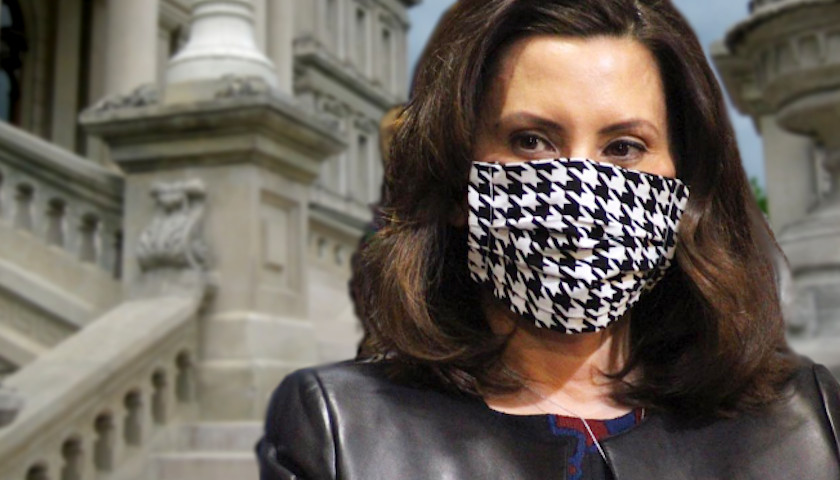by Scott McClallen
Michigan Department of Health and Human Services (MDHHS) Director Robert Gordon on Monday issued an Emergency Order under a 1978 law restricting gathering sizes, requiring face coverings in public spaces and enacting limitations on bars.
The order is effective immediately and remains in effect through Oct. 30.
The order doesn’t lean on the rule Gov. Gretchen Whitmer has used to issue emergency orders that the Michigan Supreme Court invalidated on Friday.
“When it comes to fighting COVID-19, we are all in this together. We need Michiganders everywhere to do their part by wearing masks and practicing safe physical distancing so we can keep our schools and small businesses open and protect the brave men and women serving on the front lines of this crisis,” Whitmer said in a statement.
“The epidemic order that Director Gordon issued today is an important step to protect Michiganders across the state from the spread of COVID-19. Let’s all mask up and stay safe.”
The 1978 law allows Gordon to prohibit gatherings for any purpose and may establish rules during COVID-19 to protect public health.
Violations of this order are punishable by a misdemeanor, imprisonment for not more than six months, or a fine of not more than $200, or both.
Violations of this order are also punishable by a civil fine of up to $1,000.
“Michigan was hit hard by COVID-19 early in the pandemic,” Gordon said in a statement. “Strict preventive measures and the cooperation of Michiganders drove those numbers down dramatically, greatly reducing the loss of life. As we head into flu season, this order is necessary to protect vulnerable individuals, ensure the health care system can provide care for all health issues, keep schools open, and maintain economic recovery.”
The order includes:
- Requirements to wear masks at indoor and outdoor gatherings, defined as any occurrence where persons from multiple households are present in a shared space in a group of two or more.
- Requires businesses and government offices to enforce those requirements for gatherings on their premises. The order also requires the wearing of masks at schools, except for in Michigan Economic Recovery Council Region 6.
- The order reinstates limitations on gathering sizes that mirror Whitmer’s previous requirements. These include indoor gatherings of more than 10 and up to 500 people occurring at a non-residential venue are permitted within the following limits:
- In venues with fixed seating, limit attendance to 20% of normal capacity. However, gatherings up to 25% of normal capacity are permitted in Michigan Economic Recovery Council Region 6.
- In venues without fixed seating, limit attendance to 20 persons per 1,000 square feet in each occupied room. However, gatherings of up to 25 persons per 1,000 square feet are permitted in Michigan Economic Recovery Council Region 6.
- Non-residential outdoor gatherings of between 100 and 1,000 persons at venues with fixed seating are permitted at up to 30% of normal capacity and at 30 persons per 1,000 square feet at venues without fixed seating.
- The order requires bars to close indoor common areas where people can congregate or dance.
The order doesn’t continue restaurant capacity restrictions.
Local health departments are authorized to enforce the order, and law enforcement officers are deemed as “department representatives” for enforcing this order and are specifically authorized to investigate potential violations of this order within their jurisdiction.
– – –
Scott McClallen is a staff writer covering Michigan and Minnesota for The Center Square. A graduate of Hillsdale College, his work has appeared on Forbes.com and FEE.org. Previously, he worked as a financial analyst at Pepsi.






https://wwwnc.cdc.gov/eid/article/12/1/05-1370_article
Disposable medical masks (also known as surgical masks) are loose-fitting devices that were designed to be worn by medical personnel to protect accidental contamination of patient wounds, and to protect the wearer against splashes or sprays of bodily fluids (36). There is limited evidence for their effectiveness in preventing influenza virus transmission either when worn by the infected person for source control or when worn by uninfected persons to reduce exposure. Our systematic review found no significant effect of face masks on transmission of laboratory-confirmed influenza.